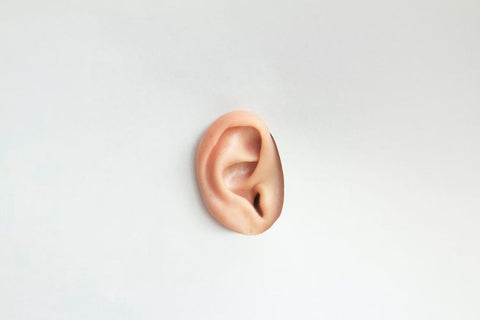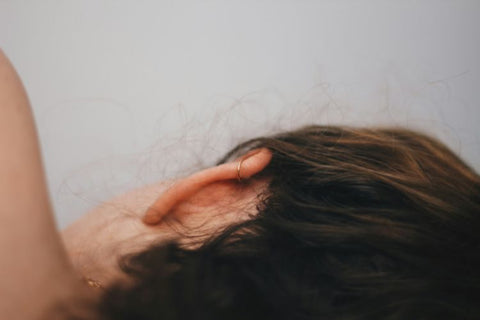Ear infections are common, and choosing the right treatment is crucial for a speedy recovery and avoiding complications. This article compares the effectiveness of Polysporin Ear Drops and home remedies, providing insights into their advantages, limitations, and safety considerations.
Effectiveness of Polysporin Ear Drops
Polysporin Ear Drops, containing antibiotics like polymyxin B sulfate and neomycin sulfate, effectively eliminate bacteria causing ear infections. They offer quick relief within a few hours, including a pain relief formulation with lidocaine.
Effectiveness of Home Remedies
Home remedies, while providing relief for pain and inflammation, do not treat the underlying infection. Common remedies include warm compresses, pain relievers, garlic oil, olive oil, and tea tree oil. However, their effectiveness varies, and more research is needed to confirm their antimicrobial properties.
Importance of Choosing the Right Treatment
Choosing the right treatment is crucial to ensure a quick and effective resolution of ear infections. Failure to treat properly could lead to complications such as hearing loss or mastoiditis.
Polysporin Ear Drops: Effectiveness and Benefits
Antibiotic Properties
Polysporin Ear Drops effectively combat a broad range of bacteria causing ear infections.
Pain Relief
The inclusion of lidocaine provides additional pain relief and reduces inflammation.
Ease of Use
Packaged in an easy-to-use bottle with a dropper for convenient application.
Quick Relief
Typically starts working within a few hours, offering swift relief.
Home Remedies for Ear Infections: Effectiveness and Limitations
Common Home Remedies
- Warm oil or garlic oil: Loosens earwax and soothes pain, but limited scientific evidence supports their effectiveness.
- Hydrogen peroxide: Removes earwax and kills bacteria, but may irritate the ear canal.
- Warm compress: Safe and effective for pain and inflammation.
- Tea tree oil: Has antimicrobial properties, but limited evidence for treating ear infections.
- Apple cider vinegar: May kill bacteria but can irritate the ear canal.
Effectiveness of Home Remedies
While some home remedies may relieve pain and inflammation, they often lack scientific evidence and may have side effects.
Limitations of Home Remedies
- Lack of scientific evidence.
- Potential side effects, such as irritation.
- Ineffectiveness for certain types of infections.
Comparative Analysis: Polysporin Ear Drops vs. Home Remedies for Ear Infections
Speed of Relief
- Polysporin Ear Drops: Typically start working within a few hours.
- Home Remedies: May provide relief but might take longer than Polysporin Ear Drops.
Antibacterial Properties
- Polysporin Ear Drops: Contain potent antibiotics effective against a wide range of bacteria.
- Home Remedies: Some, like garlic oil, have antibacterial properties, but with less scientific support.
Ease of Application
- Polysporin Ear Drops: Convenient bottle with a dropper.
- Home Remedies: Varies; some are easy, while others may be challenging and could irritate the ear canal.
Safety
- Polysporin Ear Drops: Generally safe but may cause side effects like ear irritation.
- Home Remedies: Some are safe, while others like hydrogen peroxide, tea tree oil, and apple cider vinegar can irritate the skin.
Cost
- Polysporin Ear Drops: Relatively affordable.
- Home Remedies: Vary in cost, with many being inexpensive or free.
Availability
- Polysporin Ear Drops: Over-the-counter at most pharmacies.
- Home Remedies: Widely available, though some may require special ingredients or equipment.
When to Choose Polysporin Ear Drops
Polysporin Ear Drops are generally the best choice for treating:
- Severe ear infections.
- Children under 2 years old.
- Adults with perforated eardrums.
When to Choose Home Remedies
Home remedies may be suitable for mild ear infections in adults and children over 2, but consulting a doctor is essential to ensure safety.
Specific Cases or Conditions
Mild Ear Infection in an Adult
A warm compress may suffice, but if symptoms persist, seeing a doctor is crucial.
Severe Ear Infection in a Child
Polysporin Ear Drops are recommended, and home remedies should not be used without consulting a doctor.
Ear Infection in an Adult with a Perforated Eardrum
Polysporin Ear Drops should not be used, and home remedies should be avoided to prevent further complications.
Safety Precautions for Ear Infection Treatment
Follow safety precautions for any ear infection treatment:
- Avoid inserting objects into the ear canal.
- Do not use ear drops with a perforated eardrum.
- Adhere to the directions for over-the-counter ear drops or home remedies carefully.
FAQs (Frequently Asked Questions)
1. Can I use Polysporin Ear Drops for viral ear infections?
Polysporin Ear Drops are effective against bacterial infections. They may not be suitable for viral infections. Consult a doctor for proper diagnosis and treatment.
2. Are home remedies safe for children with ear infections?
Some home remedies may be safe for children over 2, but it's crucial to consult a doctor before using them. Avoid using remedies that can irritate the ear canal in young children.
3. How long does it take for Polysporin Ear Drops to show results?
Polysporin Ear Drops typically start working within a few hours to provide relief from pain and inflammation.
4. Can I combine Polysporin Ear Drops with home remedies?
It's advisable to consult a healthcare professional before combining treatments to ensure safety and effectiveness.
5. Are there any side effects of using home remedies for ear infections?
Certain home remedies like hydrogen peroxide, tea tree oil, and apple cider vinegar can irritate the skin and worsen the infection. Use with caution and discontinue if irritation occurs.
You might be interested in:
- Swimmer's Ear 101: Prevention and Quick Relief Using Polysporin Ear Drops
- 5 Signs You Might Need Polysporin Ear Drops: Understanding Ear Pain & Infections
Other Resources:
For those who are curious, want to expand their knowledge, or just like keeping informed, here are some links to sites that you might like. These online resources come from institutions that hold a sterling reputation for their expertise and stringent standards for relevant information.
WebMD - Ear Infections: Symptoms, Causes, and Treatments
https://www.webmd.com/cold-and-flu/ear-infection/default.htm
Canadian Pediatric Society - Ear Infections in Children
https://www.cps.ca/en/documents/position/acute-otitis-media





